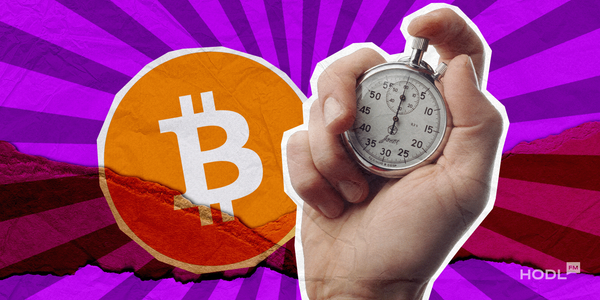Solo staking is the process of running your own Ethereum node and participating personally in the consensus mechanism of the Ethereum network. Instead of pooling your ETH tokens with others to earn passive rewards, you’re the boss of the staking pool, reaping all the benefits. As long as you keep your node running well and stay online 24/7, you get direct rewards from the network.
Besides the passive income, solo staking also makes you committed to the security and decentralization of the Ethereum network. The decentralization factor comes from the fact that you’ll be operating your own copy of the Ethereum network. The security factor comes from validating and approving transactions and even proposing the building of new blocks.
Solo staking from home is
— superphiz.eth 🦇🔊🛡️ (@superphiz) October 4, 2023
- the most decentralizing thing you can do
- not nearly as hard as you think
- satisfying and rewarding
- as close to the Ethereum chain as you can get.
Become a solo staker. Reap the rewards.
How Solo Staking Works
Ethereum solo staking starts with preparing a security deposit (or investment, as the network calls it) of 32 ETH. Why the deposit? Well, you’ll be taking part in a core process (validation and block building), which concerns the entire network's security. Of course, the Ethereum protocol will need some assurance that you’ll be on your good behavior.
After that, you need to prepare a computer that will be online 24/7 and download the Ethereum client into it. Keep in mind that not just any computer will do; you need hardware with sufficient processing capabilities and ample storage. Then, you’ll synchronize the consensus layer client and the execution layer client of your setup.
The next step is to generate a pair of cryptographic keys for your setup. These private and public keys will be your identity (or signature) as a validator and will also aid in the collection of rewards. After generating the keys, you’ll load them up into your Ethereum client and make the security deposit.
With this, you can start validating transactions, processing transactions, confirming the validity of blocks, and proposing some yourself. As your setup will be working 24/7, you’ll need ongoing maintenance and monitoring to ensure that it never goes online. If it ever malfunctions or goes offline, well, there goes a part of your security deposit.
Benefits of Solo Staking
Now that you’ve understood how to solo stake, you’re probably wondering about the rewards that come with it, right? Well, there’s a lot you can benefit if you solo stake, and you’ll learn about them below.
Passive Income
Like all forms of staking, solo staking is a form of passive income. You’re getting paid by the Ethereum network for contributing to security and getting involved in transaction validation. It’s a less risky alternative to making that cryptocurrency cash than trading cryptocurrency and potentially losing your money.
Earning ETH Directly
Freshly minted ETH is one of the biggest rewards that you earn for going through the stress of solo staking. Instead of going through a bunch of middlemen (who always take their cut), you get to keep everything.
Comment
by u/routine88 from discussion
in ethstaker
Security
If you’ve been worrying about the safety of your funds on the Ethereum network, you can boost the protocol’s security by becoming a validator. By participating in solo staking, you’ll be adding to the decentralization of the network and boosting its robustness.
By solo staking, you're not just earning rewards, you’re strengthening the decentralized future of Ethereum.
— dotunwilfred (@dotunwilfred) September 27, 2024
Your node, your rules!
You are fully in charge.
Control
One of the biggest benefits of solo staking is that you get to take the driver’s seat in regard to your investment. Instead of worrying if third-party stakers are taking the necessary steps to protect your investments, you can handle things yourself. You can prepare the hardware and software combination that’ll offer the lowest risks and the highest protection.
Comment
by u/routine88 from discussion
in ethstaker
Network Stability
Ethereum is one of the most secure platforms in the world, which means that assets or investments on it are safe. So, if you want to earn from staking your funds, the Ethereum network stands as one of the most secure options.
Risks and Challenges of Solo Staking
Solo staking is not all fun and games, as there are some risks and difficulties attached to this endeavor.
Hardware
First, you can’t start solo staking until you’ve acquired sufficient hardware. By sufficient, I mean a computer with at least 2TB SSD memory, 16GB RAM, and a 4-core CPU.
You might argue that any decent modern computer can handle the Ethereum client. But can they handle its extensive operations for days, weeks, and months at a time? Especially as the network is growing and transactions are increasing.
Slashing
In solo staking, you take on the responsibility of validating transactions and contributing to the safety of the Ethereum network. If you can’t fulfill those duties accurately, the Ethereum protocol will punish you by taking a percentage of your deposit. This is called ‘Slashing’ and it's one of the scariest risks of solo staking.
So, your node cannot be offline, when it's supposed to be online and you cannot make validation mistakes like signing two blocks for one slot. Sometimes, 1/32 of your stake is burned (permanently removed); other times, you could lose that validator status.
Security Deposit
For many people, just getting their foot beyond the door is enough of a hassle. After all, how many people could afford 32 ETH to invest in a solo staking endeavor?
Comment
by u/cointelegraph1 from discussion
in ethereum
Technical Skills
Sometimes, one of the things that turn away people from solo staking is the technical know-how required. While you won’t need to be a computer nerd, you’ll need to know how to update your setup, maintain it, etc. For non-tech-inclined individuals, this is asking for too much.
Requirements for Solo Staking
Solo staking requirements for the Ethereum network are quite straightforward:
- 32 ETH security deposit
- Dedicated computer with 2TB SSD, 4-core CPU, and 16GB RAM
- Reliable internet connection
- The Ethereum client
- Validator key pair (public and private key)
- Constant power supply
- Basic technical skills for validating transactions
Comparison with Other Staking Methods
Crypto solo staking isn’t the only way to stake your funds to earn passive income on the Ethereum network. There are other ways to go about it, and each comes with its own benefits and drawbacks.
Pooled Staking
This is where you team up with others to stake on the Ethereum network instead of staking alone. One of the major differences between solo staking vs pooled staking is that you don’t need any technical knowledge for pooled staking.
It doesn’t need any 32 ETH investment either; you only need to deposit as much as you have. Of course, the rewards will be distributed based on everyone’s investments.
Staking as a Service
Here, you set up your validator credentials, provide the security deposit, generate keys, and leave someone else to manage your node. You’ll earn the rewards for running a node, and the third party managing it gets their cut.
So, you can say that it's a more hands-off approach to staking compared to solo staking. However, you’ll need to make sure you choose a trustworthy individual to manage the node on your behalf. If your validator makes mistakes, you’ll bear the penalties.
Centralized Exchange Staking
Instead of pooling your resources with others, centralized exchange staking has you taking your ETH to a centralized platform. There, you’ll deposit the funds and participate in staking activities to earn rewards.
Centralized exchange staking is more convenient and secure compared to pooled staking. Despite that, its rewards cannot compare to solo staking rewards. Also, when you work with a centralized platform, you’ll have to trust them with custody of your private keys (which control your assets).
Future of Solo Staking
Solo staking is a great initiative, allowing people to earn directly from the Ethereum network. It also fosters greater control over investments, removes third-party interference, and allows ETH users to do their part in securing the network. Solo staking also encourages decentralization, which is a fundamental value of the blockchain.
The beauty of solo staking is that it offers the biggest incentives for staking. With the just concluded Shanghai Upgrade, many Ethereum users will probably join this staking mechanism, as withdrawal of stakes is now possible.

Disclaimer: All materials on this site are for informational purposes only. None of the material should be interpreted as investment advice. Please note that despite the nature of much of the material created and hosted on this website, HODL FM is not a financial reference resource and the opinions of authors and other contributors are their own and should not be taken as financial advice. If you require advice of this sort, HODL FM strongly recommends contacting a qualified industry professional.




